This post may contain references or links to products from one or more partners of our parent company and/or subsidiaries of our parent company. For more information, visit this page.
February 25, 2020
You’ve heard a lot about the pros and cons of cork flooring, but how do you know if it’s right for you?
We know—there are endless types of flooring to choose from. And even if you do decide on cork, most of the best cork flooring options come in different sizes, shapes, and finishes.
Not sure what you want? Don’t worry—we’re here to help. Let’s learn some more about the best cork flooring options and how you can transform your home with this beautiful, warm, environmentally-friendly material.
What makes the best cork flooring so awesome?
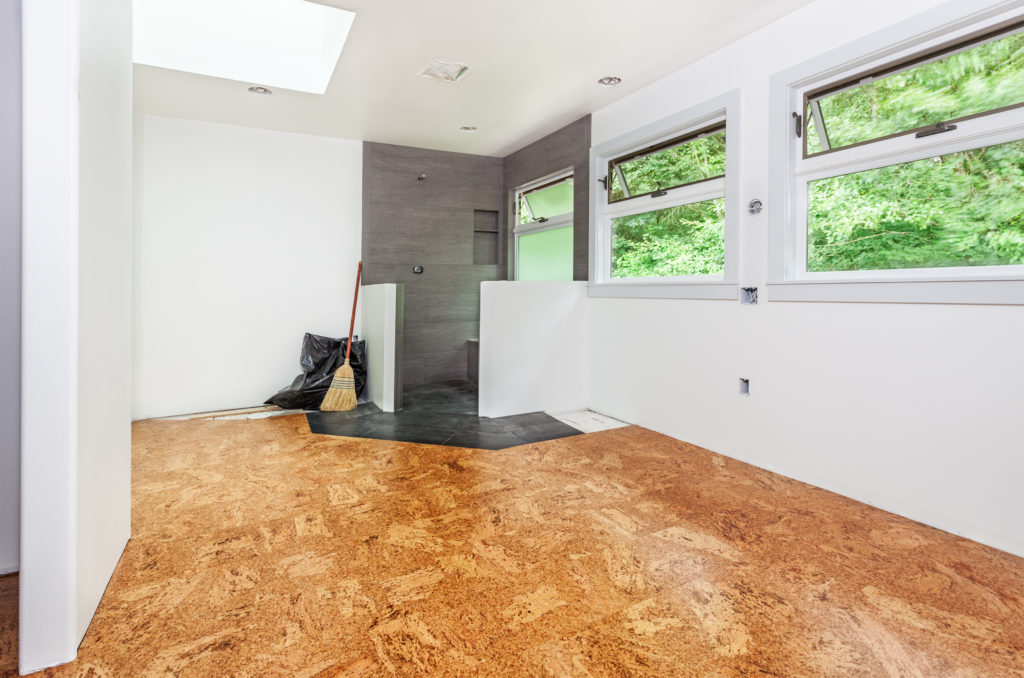
We thought you’d never ask! Let’s run through some of cork’s biggest advantages; once we’ve got the basics down, we’ll go into more detail below.
1. Cork offers tons of choices
Whether you’re looking for a solid floor, an engineered floor, or a totally natural floor, cork has you covered.
2. Cork is naturally insulating
Cork floors naturally hold in heat, so you get warmer floors and warmer feet (the rhyme was unintentional, we swear).
3. And it’s naturally hypoallergenic
Unlike carpet (cork’s closest competitor in terms of warmth), cork doesn’t absorb dust and is totally hypoallergenic. If you seal your cork floors properly, they’re going to be naturally resistant against dust mites, microbes, mold, and mildew.
4. Cork is ergonomic (and easy on the joints)
Cork’s natural composition makes it flex and bounce just enough to reduce stress on your back and feet. It’s not a soft floor per se—it’s just super, super comfy.
5. It can be refinished
Thick cork floors without a laminate finish can be sanded and refinished if they need a refresh. You can also pull up and replace individual tiles or planks if needed (although this depends on the specific product you buy).
6. It’s super versatile
Cork floors come in tons of different finishes. You can find ones that resemble hardwood, tile, or even stone. And it comes in tons of colors, too!
7. Cork is naturally sound-dampening
If you’re looking for a surface that won’t amplify sound, cork’s probably your best choice. Cork is naturally sound-absorbent, and it’ll keep your house calm and quiet—even if your kids have recently taken up tapdancing.
8. Cork is eco-friendly
Thanks to cork’s environmentally-friendly production methods, it’s known as one of the greenest and most sustainable flooring options around.
9. Cork can be very easy to install
Cork flooring comes in a variety of mediums, from click-lock planks to full sheets. Depending on the product you choose, putting in a cork floor can be a relatively easy project.
10. It’s surprisingly durable
Despite what you might think (we know, wine bottle corks don’t give a great impression when it comes to durability), cork can be an extremely durable floor. Really!
11. And it’s competitively priced
Again, it depends on the specific product you choose—but cork can be just as competitively priced as many other types of floors.
Best Brands of 2024
Types of cork flooring: the basics
Generally speaking, cork flooring comes in three different mediums: cork tiles, cork planks, and cork sheeting. Each one can be installed in a variety of different ways, and like most wood flooring types, they can also be constructed as either solid or engineered products.
Installing different types of cork flooring
Cork tiles
Cork tiles often have to be glued to a subfloor. If you decide to go with a conventional glue-down product, take our advice and find a flooring professional in your area to do the job—it can get messy and stressful really quickly. Plus, you have to make sure your subfloor is on the up-and-up before you begin.
Fortunately, lots of manufacturers are now offering peel-and-stick cork tiles for the DIY crowd. These come in a variety of sizes, styles, and colors, and you install them the same way you install peel-and-stick carpet tiles from Home Depot—just clean, peel, and press!
Click-together cork planks
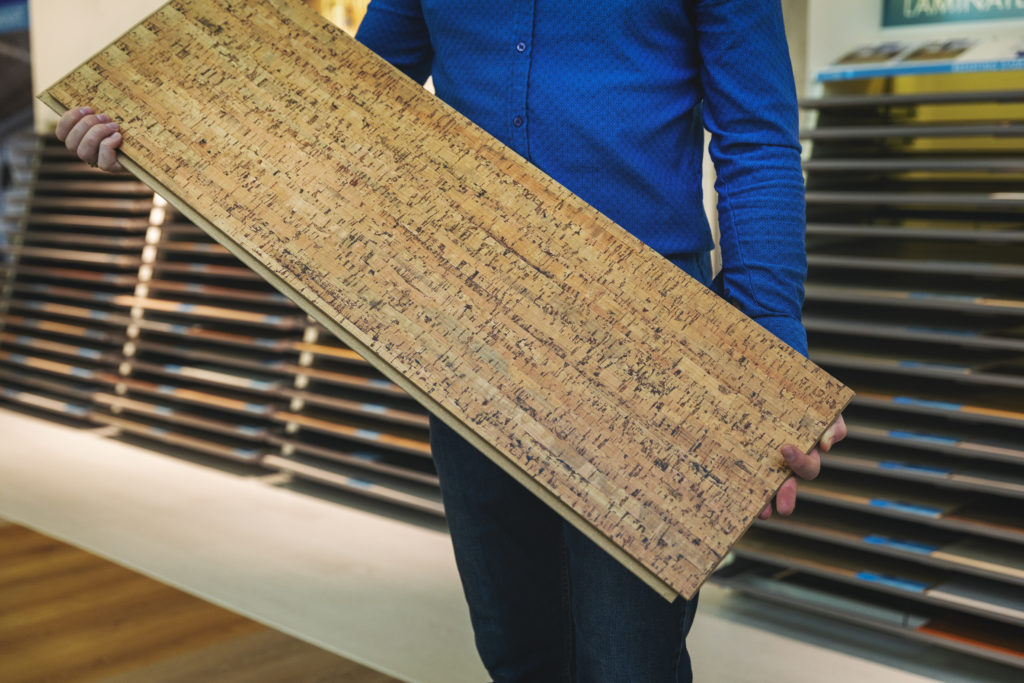
When you think of click-together flooring, you probably don’t think of cork—but like many of today’s best vinyl flooring options, cork flooring now comes in snap-lock planks.
If you’re not familiar with these, they’re relatively easy to install—just use the special interlocking grooves to tap them into place. No need to nail or glue them down! Plus, as a “floating floor”, they can be installed over existing surfaces, which is super convenient.
Cork sheets
You can also purchase cork flooring in sheets or rolls. These are most frequently used for commercial applications or as an underlayment, but they can make an amazing surface as well.
Cork flooring price comparison
The exact cost of cork flooring depends on a number of factors, including construction (solid vs. engineered), color, finish, manufacturer, and just about a million other things. That being said, you can expect a cork floor to cost between $3–$12 per square foot.
The best cork floors are surprisingly durable
While cork isn’t usually thought of as the most durable flooring option in the world, it’ll surprise you. With basic care and maintenance, it can last for generations.
Cork can stand up to heavy traffic
You might be surprised to hear that cork floors can handle heavy traffic extremely well. The relative softness of cork floors is actually an advantage when it comes to taking abuse—its “elastic memory” helps it keep its shape, resist dents and gouges, and repair minor damage.
Cork floors have been installed in places that receive extremely heavy traffic, including IKEA. All we know is this: if it can handle thousands of IKEA shoppers, it can handle your pets and kids.
Cork floors can be sanded and refinished
Accidents do happen, but don’t despair! Many types of cork floors (specifically those over 4mm thick without a laminate finish) can be sanded down and refinished. If you have a click-together product, though, you can just take out any damaged planks and replace them.
Cork floors can be water-resistant
Cork floors are naturally water-resistant, and sealers can be added to make them even closer to competing with traditional waterproof flooring options. Your cork floor should hold up just fine as long as you don’t abuse it, let it get saturated, or install it somewhere excessively damp.
Cork is easy to maintain (and can last decades)
If you have concerns about maintaining your new floors, relax! Cork flooring is easy to maintain and clean. It’s impervious to dust, and with periodic sweeping, dry-mopping, and sealing, it can last for ages.
The best cork flooring advantage: it’s sustainable
Want to do your part to save the planet? Start with sustainable flooring!
Cork trees are sustainably harvested

Unlike similar flooring products, cork floors don’t come from wood at all—they come from bark. It takes a cork tree 20–25 years of growth to be ready for its first harvest, but after that, its bark can be repeatedly harvested every 9 years or so for up to 250 years.
But wait! It gets better.
Harvested sheets of cork bark are first used to make wine corks. Then, the leftover material is processed to make other products like bulletin boards, Birkenstocks, and… you guessed it… cork flooring! In this way, every bit of the harvested cork gets used. It doesn’t get much greener than that.
Plus, cork is biodegradable
If you’re concerned about long-term environmental impacts, you’ll be glad to hear that cork is also biodegradable. Our children and grandchildren will have plenty of leftover non-biodegradable waste products to deal with—but cork won’t be one of them.
Conclusion
If you’re ready to install new floors in your home and you’re looking for something durable, eco-friendly, hypoallergenic, sound-dampening, warm, and affordable, think about cork! After all, the best cork flooring advantage is it offers endless advantages.
Whenever you’re ready to get started, find a flooring retailer in your area—they can help you with all the specifics. And for more information to help you find your perfect floor, check out:
About The Author

Dr. Sara Austin
February 25, 2020
Best known for being “not that kind of doctor” and never knowing which fork to use, Sara is a learning designer and writer, former real estate agent, and builder with a penchant for home design and remodeling.
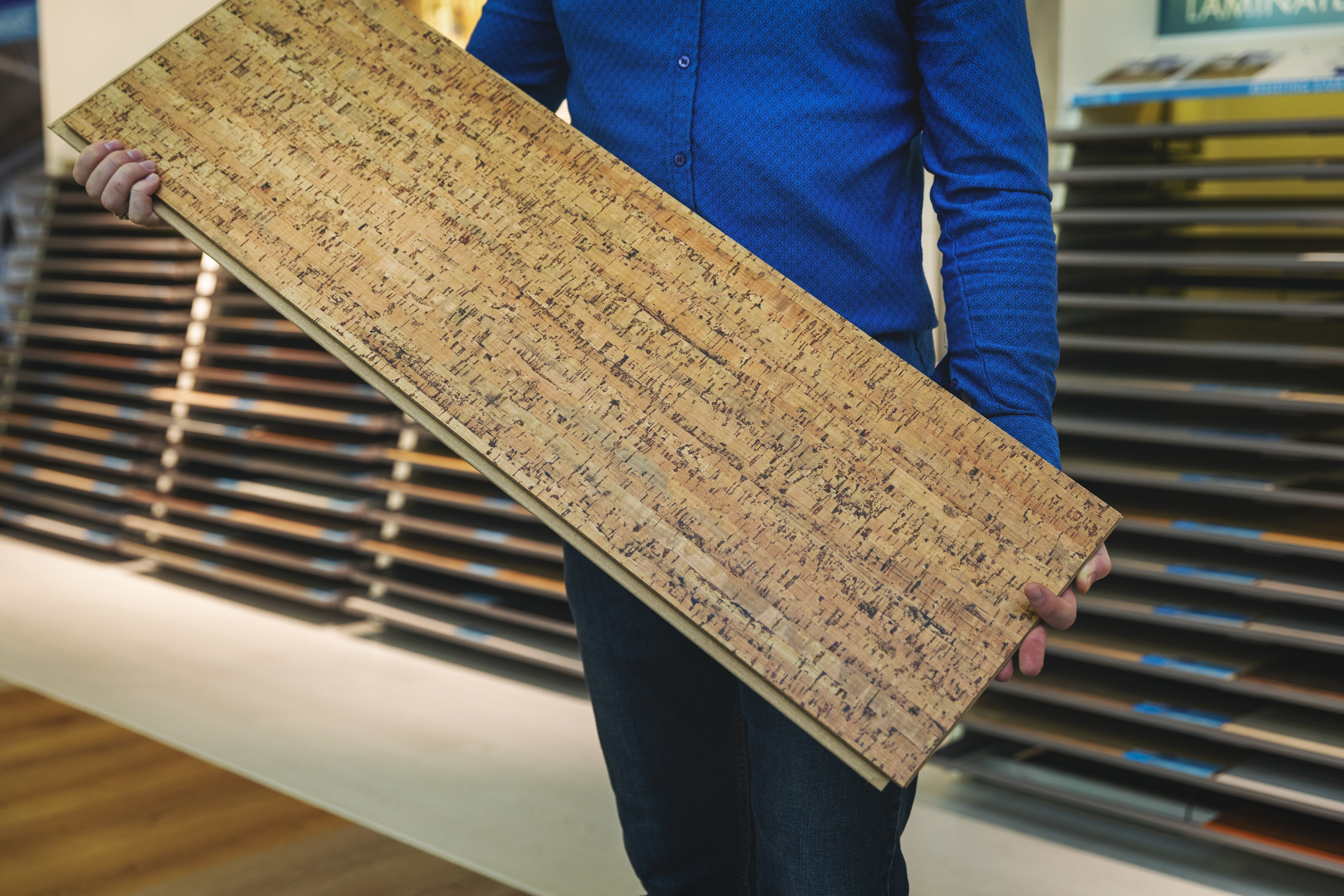


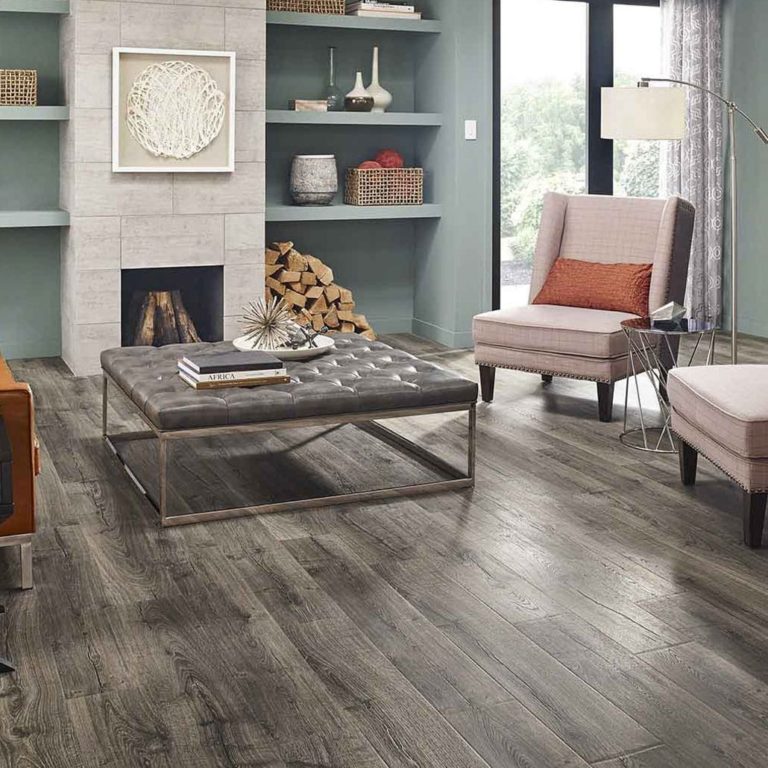
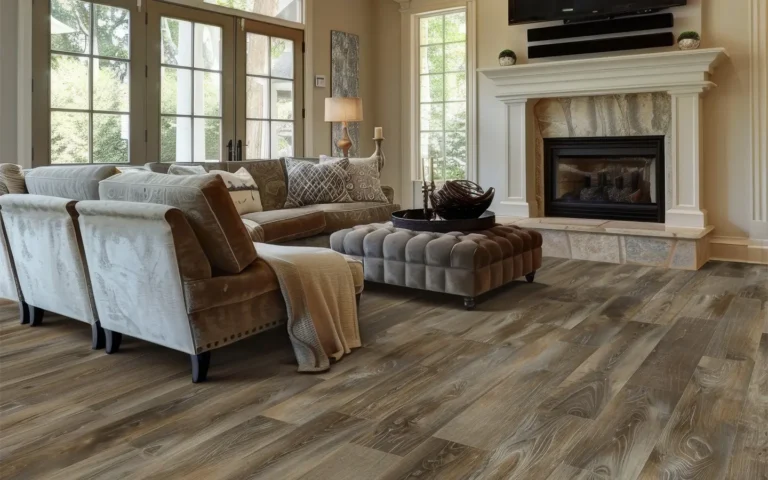

2 comments
Rosanna Bishop
I would like to know if I use the plank cork flooring that already has the polyurethane (or whatever) for protection, is it better to use the planks that lock together or nail into place like a regular hardwood floor. I’m a litttle concerned about the lock (floating). This way of installing does’nt seem reliable and at some point could move (just seems like a very cheap way to install flooring). Please give me your suggestions. I’m sure it would be less expensive, but at the same time just does not seem substantial enough. Please advise………..THANKYOU!
Samuel Greenberg
Hi Rosanna,
Thanks for reading and excellent question! As far as prefinished cork planks are concerned, we would actually recommend letting the manufacturer dictate the installation style. Click-together floating floors might sound insubstantial (lots of people think so; you’re definitely not alone on that)—but really, they can be just as durable and long-lasting as nail-down setups. The reason we say to let the manufacturer decide is that some cork floors are designed to be installed as a floating floor, and actually last longer that way! Others are better nailed or glued down. And some, of course, you can go either way with!
If you’re looking at a product that can be installed in any of these ways, we’d recommend checking out this article on the advantages and disadvantages of floating floors before you make your decision. There are a lot of advantages for each installation style, and it really just depends on your priorities! And remember: most floating floor disadvantages can be solved by using a proper underlayment, too.
Whatever you decide, our biggest piece of advice? Buy your floors from a local flooring retailer rather than from a box store. Local retailers only do flooring, and they do it really well. So if anyone can give you expert advice on installation styles for your particular situation, it’s them!
Thanks so much again for reading (and for your excellent question) and please feel free to send us a message if you have any other questions we can answer!